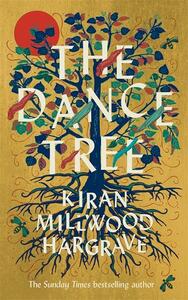You need to sign in or sign up before continuing.
Take a photo of a barcode or cover
sad
slow-paced
Plot or Character Driven:
A mix
Loveable characters:
Complicated
consumed this as an audiobook
i have to say, historical fiction is a hit or miss, this sadly does lean a bit towards the miss, but more because i didnt quite enjoy how very flat everything seemed and how the characters itself didnt seem to have much depth. i enjoyed the parts where the book was more critical and involved with religion and womanhood and the relationships between a couple of the characters were amazing and i love the overall themes and setting of the book. but it is just average to me.
i have to say, historical fiction is a hit or miss, this sadly does lean a bit towards the miss, but more because i didnt quite enjoy how very flat everything seemed and how the characters itself didnt seem to have much depth. i enjoyed the parts where the book was more critical and involved with religion and womanhood and the relationships between a couple of the characters were amazing and i love the overall themes and setting of the book. but it is just average to me.
dark
emotional
sad
tense
medium-paced
Plot or Character Driven:
A mix
dark
emotional
sad
tense
medium-paced
Plot or Character Driven:
A mix
Strong character development:
Yes
Loveable characters:
Yes
Diverse cast of characters:
Yes
Flaws of characters a main focus:
Complicated
dark
emotional
reflective
sad
medium-paced
Plot or Character Driven:
A mix
Strong character development:
Yes
Diverse cast of characters:
Yes
dark
emotional
informative
inspiring
mysterious
sad
medium-paced
Plot or Character Driven:
A mix
Strong character development:
Yes
Loveable characters:
Complicated
Diverse cast of characters:
Yes
Flaws of characters a main focus:
Complicated
i cried in king’s cross station finishing this book. devastatingly beautiful. i love sisterhood, and deep queer connection.
*slight spoilers for the ending and themes*
Historical fiction taking place in the summer of 1518 in Strasbourg, where a mysterious dance plague is occurring. It follows pregnant Lisbet who lives with her mother-in-law and husband, beekeepers whose livehood is threatened and welcoming back her sister in law who returns from penance because of a crime no one will name.
What a stunning book this was. I loved the lush emotional writing, with the use of present tense that made the story more vivid and engaging.
Lisbet was a great main character, I loved her complexity and realness, her quiet strength, her empathy towards others despite their differences, her love for her friends and family. I love how devoted she was working with the bees and her relationship to the forest. The other characters were compelling though I would have loved to see their points of view too.
The plot itself was pretty straightforward and there was no twist, although I did expect more about the dancing plague then the few chapters scattered throughout about the dancers.
The historical setting was really well rendered and I loved how various themes of religion, grief, motherhood, female agency, mental illness, patriarchy, homophobia, misogyny were entwined into the plot.
The bittersweet ending was really emotional to read. I also recommend reading the afterwords, that explains the historical context and how the author’s personal experience also influenced one plot point.
Overall an incredible book and I’m looking forward to read more of this author’s work.
dark
emotional
sad
slow-paced
Plot or Character Driven:
Character
Strong character development:
Complicated
Loveable characters:
Complicated
Diverse cast of characters:
No
Flaws of characters a main focus:
No
The novel, set in Strasbourg 1518, follows Lisbet, late into pregnancy (after a series of miscarriages) as she contends with new obstacles to her livelihood, a sister-in-law returned from penance, the transgression kept secret from her and a plague of Choreomania in the city.
This book was fundamentally not for me, I thought it was well written, the immersion in the time period was complete and skilful, but, while I hate to put it so plainly, the book was somewhat of a struggle to get thorough. This was certainly a matter of taste, as when the narrative finally started to accelerate I found my concentration and pace through the book improved. Rather humorously, I felt both that the first half of the book was much too slow and the second was much too fast. This was not an example where stalling the plot to leave you to get ingratiated with the characters bares fruit later in the when the narrative is much too filled to allow as much room for character but instead an example when the usually much sought after sense of inevitability causes the early parts of the book to drag and the later parts of the book move though the necessary climaxes so fast that there is no room to play with what you expected or explore it from a new angle. Once all the pieces are in place in the first 50 or so pages of the book, the obvious conclusion play out much as you would imagine.
There were a fair few moments that were quite accomplished, clearly well researched presentations of life in that society and the interactions with the dancing plague by those in power were quite intriguing even if the plague itself served disappointingly cursory to the novel. However, the context of the time period and the intricacies of the society which wouldn't be appreciated by a modern audience were presented more clearly in the authors note at the end of the book than in the actual text.
However, the novel isn't really about explaining life in 1518 or exploring the origins of a dancing plague, this is a story about motherhood, it's difficulties, the ticking clock, the grief and mourning of the unborn totally ignored and dismissed by all but the mothers that experience it. Setting the story during a time when there is no distraction or deviation from a rigid sense of what is expect of women, with very little to occupy a woman's time outside of household chores and being pregnant, where miscarriage is a failing of the mother, creates a microcosm of the emotions that remain contemporary to those that experience child loss. The element of the novel is well presented but doesn't justify the length and often for me tedium of other elements that surround it.
If you know yourself to enjoy slower, quieter historical fiction, as sparsely written as the time period it depicts then this is certainly going to land for you, but if imagery that is often repeated, quite purposefully, due to the lack of possibly reference which wouldn't be anachronistic, and thematic rumination rather than profound conclusions sounds uninviting then you'll likely find yourself enjoying this less than me and would likely wish to avoid it.
This book was fundamentally not for me, I thought it was well written, the immersion in the time period was complete and skilful, but, while I hate to put it so plainly, the book was somewhat of a struggle to get thorough. This was certainly a matter of taste, as when the narrative finally started to accelerate I found my concentration and pace through the book improved. Rather humorously, I felt both that the first half of the book was much too slow and the second was much too fast. This was not an example where stalling the plot to leave you to get ingratiated with the characters bares fruit later in the when the narrative is much too filled to allow as much room for character but instead an example when the usually much sought after sense of inevitability causes the early parts of the book to drag and the later parts of the book move though the necessary climaxes so fast that there is no room to play with what you expected or explore it from a new angle. Once all the pieces are in place in the first 50 or so pages of the book, the obvious conclusion play out much as you would imagine.
There were a fair few moments that were quite accomplished, clearly well researched presentations of life in that society and the interactions with the dancing plague by those in power were quite intriguing even if the plague itself served disappointingly cursory to the novel. However, the context of the time period and the intricacies of the society which wouldn't be appreciated by a modern audience were presented more clearly in the authors note at the end of the book than in the actual text.
However, the novel isn't really about explaining life in 1518 or exploring the origins of a dancing plague, this is a story about motherhood, it's difficulties, the ticking clock, the grief and mourning of the unborn totally ignored and dismissed by all but the mothers that experience it. Setting the story during a time when there is no distraction or deviation from a rigid sense of what is expect of women, with very little to occupy a woman's time outside of household chores and being pregnant, where miscarriage is a failing of the mother, creates a microcosm of the emotions that remain contemporary to those that experience child loss. The element of the novel is well presented but doesn't justify the length and often for me tedium of other elements that surround it.
If you know yourself to enjoy slower, quieter historical fiction, as sparsely written as the time period it depicts then this is certainly going to land for you, but if imagery that is often repeated, quite purposefully, due to the lack of possibly reference which wouldn't be anachronistic, and thematic rumination rather than profound conclusions sounds uninviting then you'll likely find yourself enjoying this less than me and would likely wish to avoid it.
challenging
emotional
hopeful
reflective
sad
tense
slow-paced
Plot or Character Driven:
A mix
Strong character development:
Yes
Loveable characters:
Yes
Diverse cast of characters:
Complicated
Flaws of characters a main focus:
Complicated






